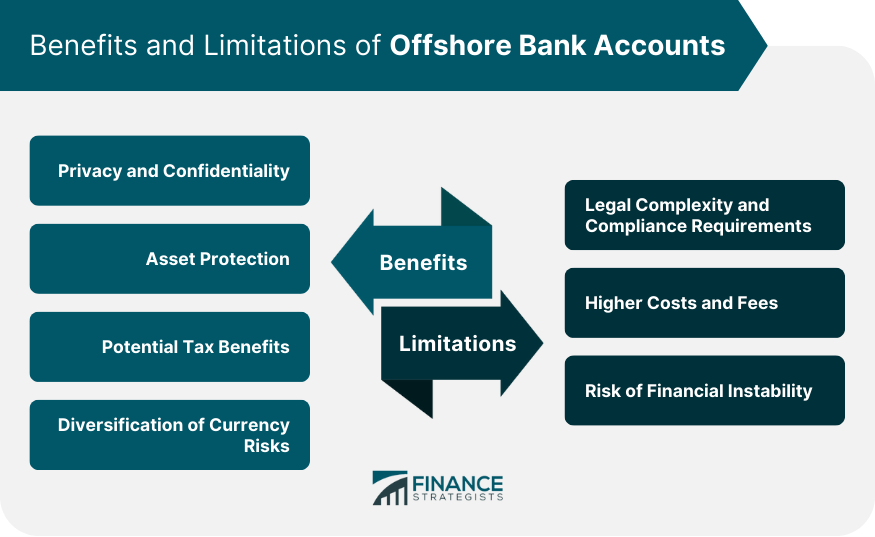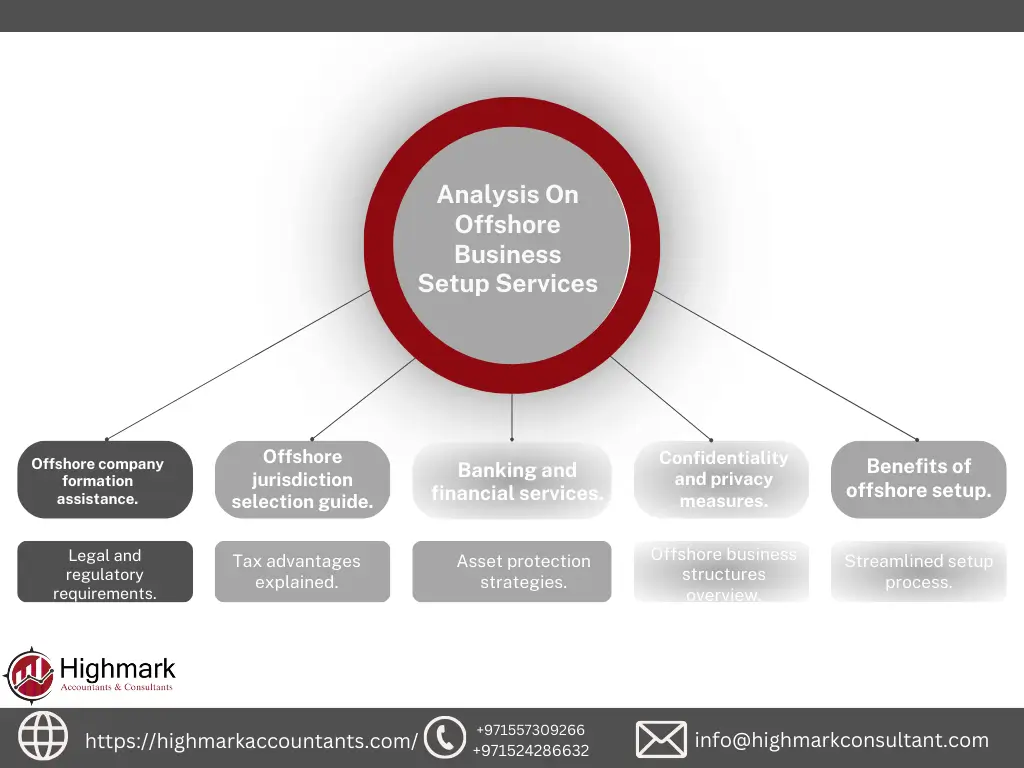Offshore Company Formations for Consultancies: A Step-By-Step Resource
Debunking Offshore Business Formations: Just How They Operate and What to Anticipate
Offshore firm formations can appear facility and enigmatic. Offshore Company Formations. These entities, often established for tax advantages and privacy, operate under distinct legal structures. Business owners may find themselves navigating through a labyrinth of policies and conformity requirements. Comprehending the complexities is important for success. What are the actual advantages? What are the potential risks? A closer examination reveals the nuances that can influence decision-making considerably
Comprehending Offshore Business: Types and meanings
Offshore companies are entities developed in a territory outside of a person's or company's key country of house, usually for purposes associated to tax optimization, property defense, or governing advantages. These business can take different types, including restricted responsibility business (LLCs), international organization firms (IBCs), and offshore counts on. Each type offers specific functions and interest various demands.
Restricted liability firms supply proprietors with security from individual responsibility, while international company firms are preferred for their versatility and very little reporting requirements. Offshore trust funds, on the other hand, are used mostly for estate preparation and possession security.
The choice of territory significantly influences the business's procedures, as some areas provide extra favorable lawful structures and privacy protections. Offshore Company Formations. Understanding the distinctions between these types is important for businesses and individuals thinking about offshore frameworks, as each choice brings various implications for governance and conformity
The Benefits of Developing an Offshore Firm
Developing an offshore firm can provide many advantages, especially for those seeking to improve their monetary techniques and shield their possessions. One considerable advantage is tax optimization; several territories use desirable tax prices or exceptions, permitting companies to retain even more earnings. Additionally, offshore firms can supply a layer of privacy, shielding the identifications of proprietors and shareholders from public scrutiny.
An additional benefit is property security. By placing assets in an overseas entity, individuals can protect their riches from potential lawful cases or political instability in their home nations. This structure likewise assists in global business operations, making it possible for easier access to diverse clients and worldwide markets.
The establishment of an offshore company can improve reliability and prestige, appealing to clients that value international company practices. Overall, these benefits make overseas firm formations an appealing choice for businesses and people aiming for monetary development and security.
Secret Considerations Before Developing an Offshore Entity
Prior to creating an overseas entity, a number of vital variables should be assessed. Lawful conformity demands, tax obligation ramifications and benefits, as well as jurisdiction selection, play a substantial duty in the decision-making process. Understanding these considerations can help organizations and people browse the complexities of offshore firm formations efficiently.

Legal Conformity Needs
When thinking about the development of an overseas entity, recognizing lawful compliance needs is important to ensure adherence to both regional and worldwide legislations. Prospective local business owner have to familiarize themselves with laws controling company registration, reporting commitments, and operational criteria in the picked jurisdiction. This includes verifying the lawful demands for shareholders and supervisors, in addition to ensuring conformity with anti-money laundering (AML) and know-your-customer (KYC) regulations. In addition, companies must remain mindful of any type of licensing needs certain to their sector. Involving regional legal and financial experts can give useful understandings, making sure that all necessary documents is prepared and submitted appropriately. Ultimately, comprehensive knowledge of legal conformity assists alleviate risks and promotes a sustainable offshore operation.
Tax Obligation Effects and Benefits
Various entrepreneur think about the tax obligation implications and benefits of creating an offshore entity as an important element in their decision-making process. Offshore business can supply significant tax obligation advantages, such as lowered corporate tax rates, exception from particular regional taxes, and the capacity to postpone tax obligations on international income. These benefits can lead to improved profitability and cash money flow, making offshore frameworks appealing for international service procedures. Additionally, the potential for tax treaties might even more minimize tax liabilities. It is essential for company owners to comprehend the complexities included, consisting of conformity with both worldwide and local tax obligation policies. Involving with tax professionals is a good idea to browse these ins and outs efficiently and ensure perfect tax planning methods.
Territory Choice Factors
What variables should one consider when selecting a territory for overseas company formation? Trick factors to consider include tax efficiency, regulatory setting, and political security. Jurisdictions with desirable tax obligation routines can greatly impact earnings. The governing landscape should offer versatility and ease of conformity, enabling reliable company operations. Political security is vital, as it ensures the safety of possessions and connection of procedures. Additionally, the credibility of the jurisdiction can impact customer depend on and organization relationships. Accessibility to financial services and the accessibility of expert assistance solutions are also vital. Understanding regional legislations regarding coverage, possession, and personal privacy requirements is vital to establish that the overseas entity aligns with the company proprietor's objectives and lawful commitments.
Possession The Process of Establishing an Offshore Firm
Establishing an overseas company includes a series of calculated steps that call for careful preparation and conformity with international regulations. A private should select an appropriate territory that lines up with their service purposes and offers positive tax advantages. Complying with territory selection, the next step is to select a distinct firm name and prepare the required documents, consisting of posts of incorporation and shareholder arrangements.
Once the paperwork prepares, it needs to be submitted to the appropriate authorities in addition to the called for fees. After approval, the business will certainly receive a certificate of consolidation, officially developing its lawful presence. The specific must then open up a company financial institution account to assist in monetary transactions.
Preserving an offshore business involves sticking to ongoing conformity requirements, such as yearly reporting and tax obligation obligations, which vary by territory. As a result, comprehending each action is essential for a successful offshore company development.
Legal and Governing Framework for Offshore Firms
While establishing an overseas business can provide substantial advantages, it is important to steer via the intricate lawful and regulative structure that regulates such entities. Each territory has its own set of legislations that dictate whatever from business formation to taxes and conformity demands. These regulations are made to protect against unlawful tasks, such as cash laundering and tax evasion, and often need detailed documentation and openness.
Secret components of this framework include the necessity of appointing local supervisors, preserving a registered workplace, and sticking to yearly coverage responsibilities. Furthermore, lots of territories impose specific licensing requirements for sure service tasks. Understanding these lawful specifications is critical for guaranteeing compliance and mitigating threats connected with charges or lawful disagreements. Subsequently, engaging with lawyers who focus on offshore companies can assist in navigating through this detailed check over here landscape, inevitably assisting in a compliant and effective overseas company procedure.
Usual Misconceptions Concerning Offshore Companies
Many individuals hold mistaken beliefs regarding offshore firms, frequently relating them with tax obligation evasion and unlawful activities. Nevertheless, it is essential to identify that these entities can run legitimately within a framework created for legit organization methods. Clarifying the lawful status of offshore business can aid eliminate these misconceptions and promote a more accurate understanding of their function.
Tax Obligation Evasion Myths
In spite of the expanding popularity of overseas business, misconceptions regarding their usage for tax obligation evasion continue. Many individuals incorrectly believe that establishing an offshore entity is only a way to avoid tax obligations. Offshore firms are commonly made use of for reputable objectives, such as property defense, international business expansion, and investment diversity. The understanding that all overseas tasks relate to immoral tax obligation evasion overlooks the complexities of global tax obligation guidelines and conformity needs. In addition, the substantial bulk of offshore territories have actually implemented measures to battle tax evasion, advertising transparency and information exchange. This mischaracterization can deter legitimate companies and financiers from discovering the possible benefits of offshore company formations while continuing an adverse stigma surrounding these entities.
Lawful Status Clarified
The legal condition of offshore firms is typically misinterpreted, leading to a range of misunderstandings. Numerous believe these entities operate in a lawful gray area, assuming they are dishonest or naturally unlawful. In reality, overseas companies are legitimate services This Site developed under the regulations of details jurisdictions, made for numerous factors, including property protection and market growth. An additional typical mistaken belief is that overseas firms avert taxes totally; however, they are subject to the guidelines and tax commitments of their home countries. In addition, some individuals think that overseas firms can be quickly manipulated for money laundering or unlawful tasks. While abuse can happen, most territories impose strict conformity and openness legislations to minimize such threats, guaranteeing that overseas business run within lawful structures.

Taking care of and Running Your Offshore Company Properly
Successfully taking care of and operating an offshore business calls for a strategic strategy that balances conformity with neighborhood regulations and the quest of business goals. Effective offshore administration involves understanding the territory's tax obligation regulations, reporting demands, and operational policies. Employing local specialists, such as accounting professionals and lawful experts, can give invaluable insights right into going across these complexities.
Additionally, developing clear communication channels and functional methods is crucial for maintaining efficiency. Utilizing modern technology for project management and cooperation can enhance productivity, while normal efficiency evaluates guarantee positioning with calculated objectives.
Additionally, preserving durable monetary documents is important, as openness fosters trust fund with stakeholders and complies with worldwide standards. Ultimately, being adaptable to modifications in regulations or market problems enables overseas business to pivot properly, guaranteeing long-lasting sustainability and development. By sticking to these concepts, local business owner can optimize the benefits of their offshore ventures while mitigating threats.
Often Asked Inquiries
Exactly how Much Does It Cost to Keep an Offshore Company Yearly?
The price to keep an overseas business every year differs considerably, commonly ranging from $1,000 to $5,000, depending on territory, services needed, and conformity obligations. It is important to take right into account extra charges for details requirements.
Can I Open a Bank Account for My Offshore Firm From Another Location?
Opening a financial institution account for an offshore firm from another location is typically possible. Nonetheless, needs may differ by jurisdiction, frequently requiring documentation and verification procedures, which can complicate the remote application experience for people.
Are There Specific Countries Understood for Easier Offshore Company Formations?
Particular countries, such as Belize, Seychelles, and the British Virgin Islands, are renowned for their favorable guidelines and structured processes relating to offshore firm developments, attracting business owners seeking efficiency and confidentiality in organization operations.
What Kinds of Services Are Best Matched for Offshore Firms?
Particular businesses, such as investment, working as a consultant, and e-commerce firms, usually gain from offshore companies as a result of tax benefits, privacy, and regulatory adaptability - Offshore Company Formations. These entities usually thrive in territories that promote positive service settings
How Can I Make Sure Compliance With Neighborhood Laws When Running Offshore?
To ensure compliance with neighborhood regulations when operating offshore, it is necessary to engage lawful professionals, conduct detailed research on territory laws, and preserve transparent monetary documents, consequently minimizing risks related to non-compliance.
